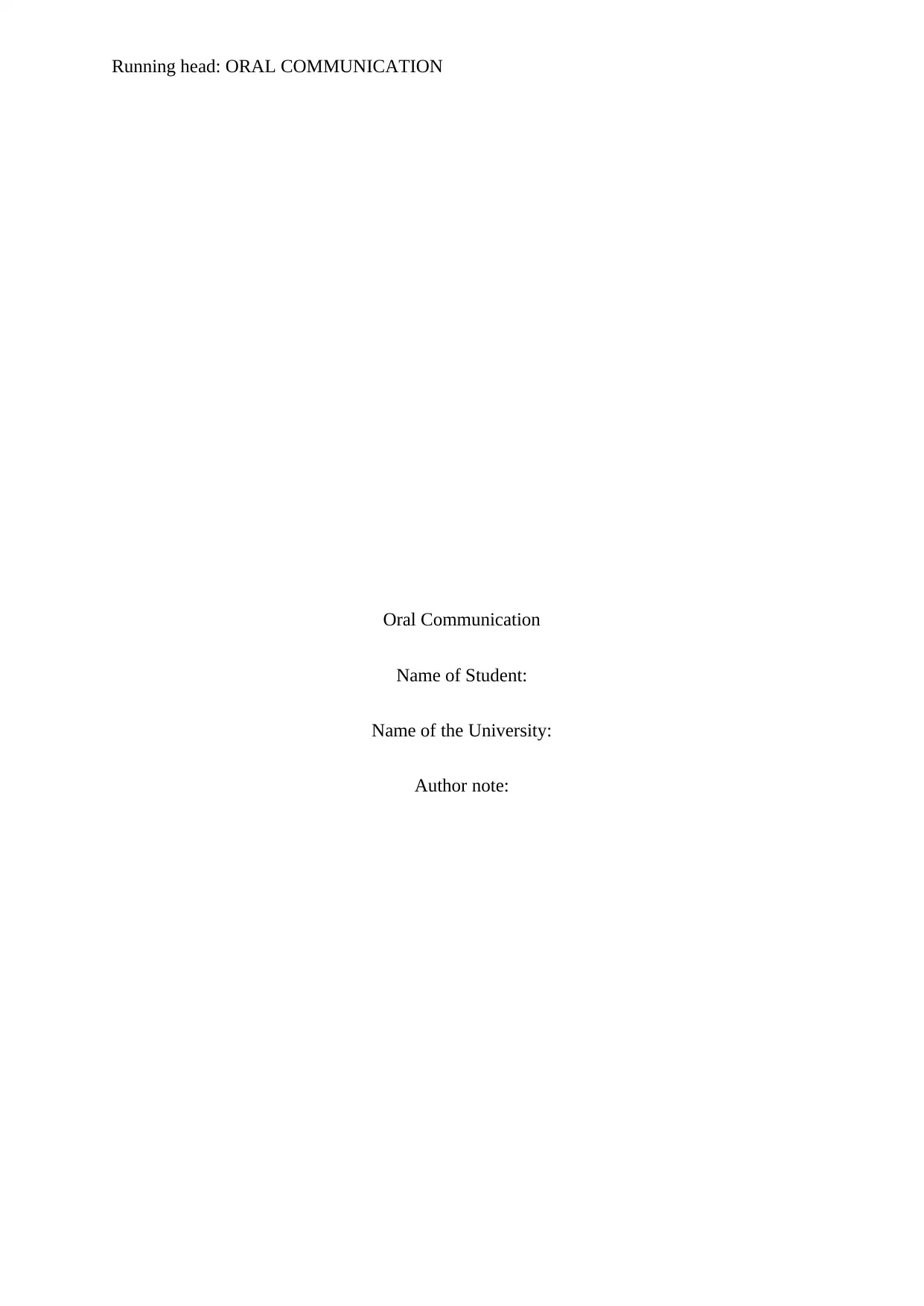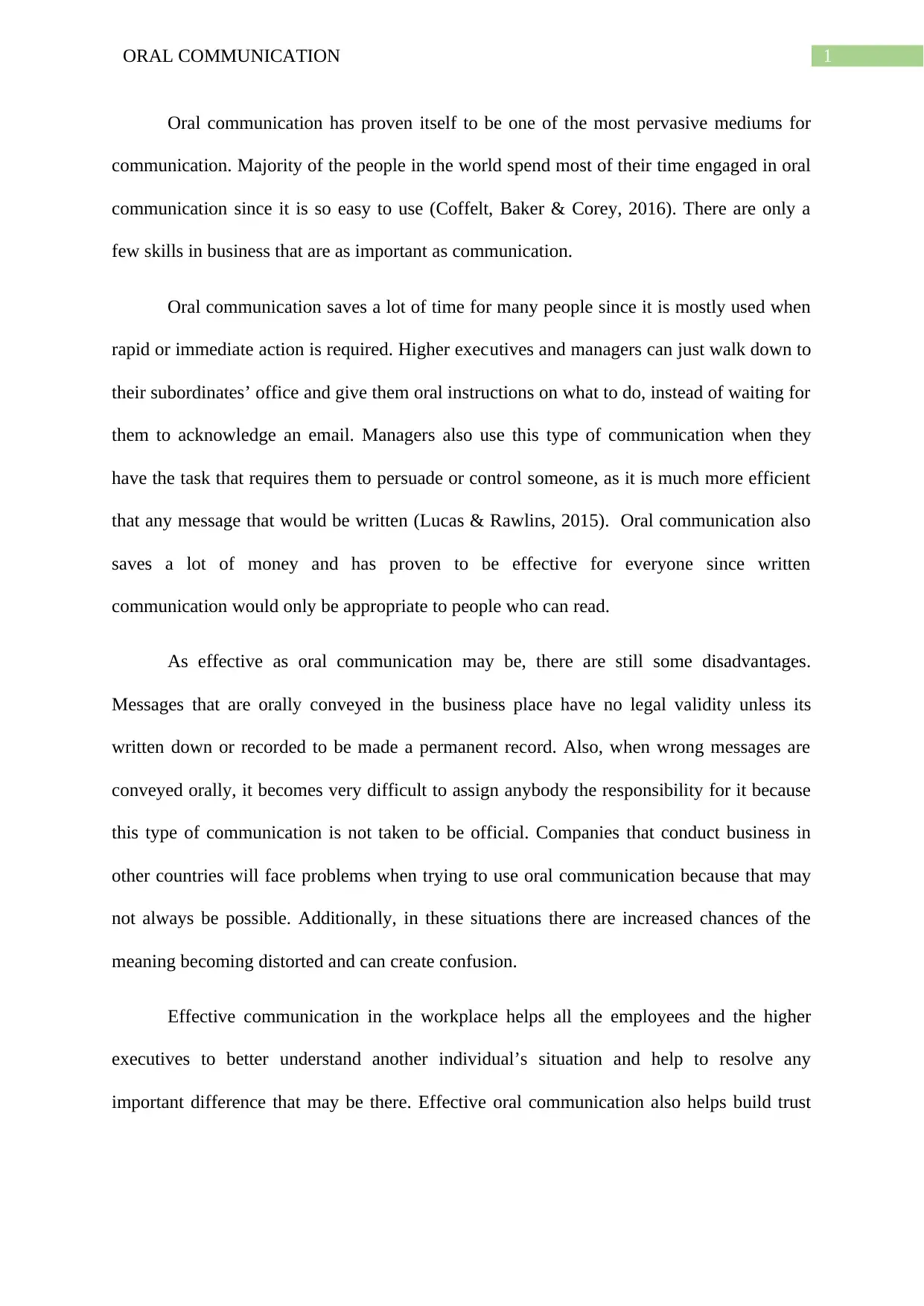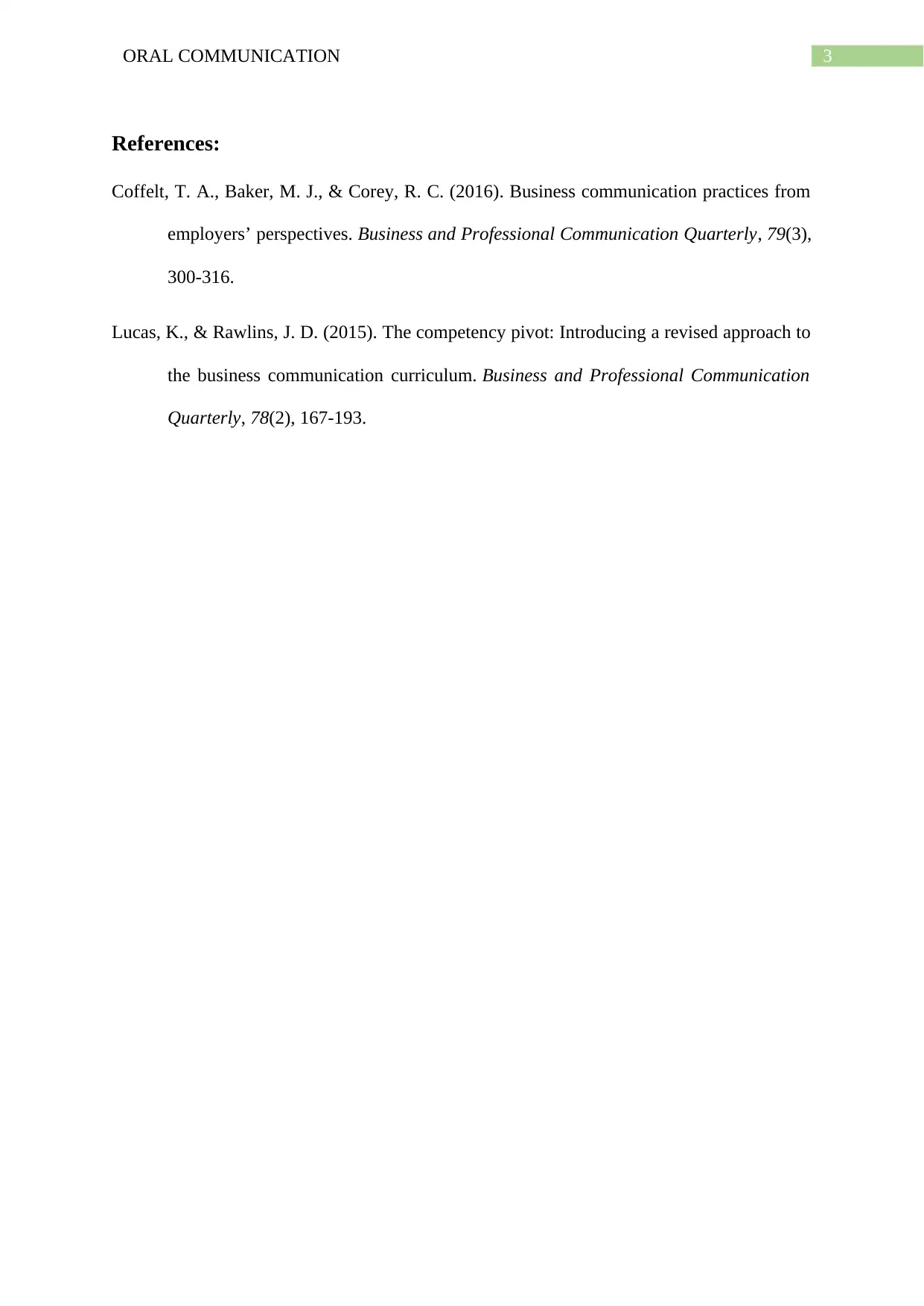University Oral Communication Analysis: MGT502 Business Communication
VerifiedAdded on 2023/01/23
|4
|472
|78
Discussion Board Post
AI Summary
This discussion post analyzes the importance of oral communication in a business context. It highlights the advantages, such as its efficiency in rapid decision-making and its cost-effectiveness compared to written communication, particularly for those who cannot read. The post also acknowledges the disadvantages, including the lack of a permanent record, potential for miscommunication, and challenges in international business settings. It emphasizes the role of effective oral communication in building trust, resolving conflicts, and understanding the emotions behind information. The analysis is based on research by Coffelt, Baker & Corey (2016), and Lucas & Rawlins (2015), providing a comprehensive overview of the topic. This assessment is a discussion forum post for the MGT502 Business Communication course.
1 out of 4









![[object Object]](/_next/static/media/star-bottom.7253800d.svg)